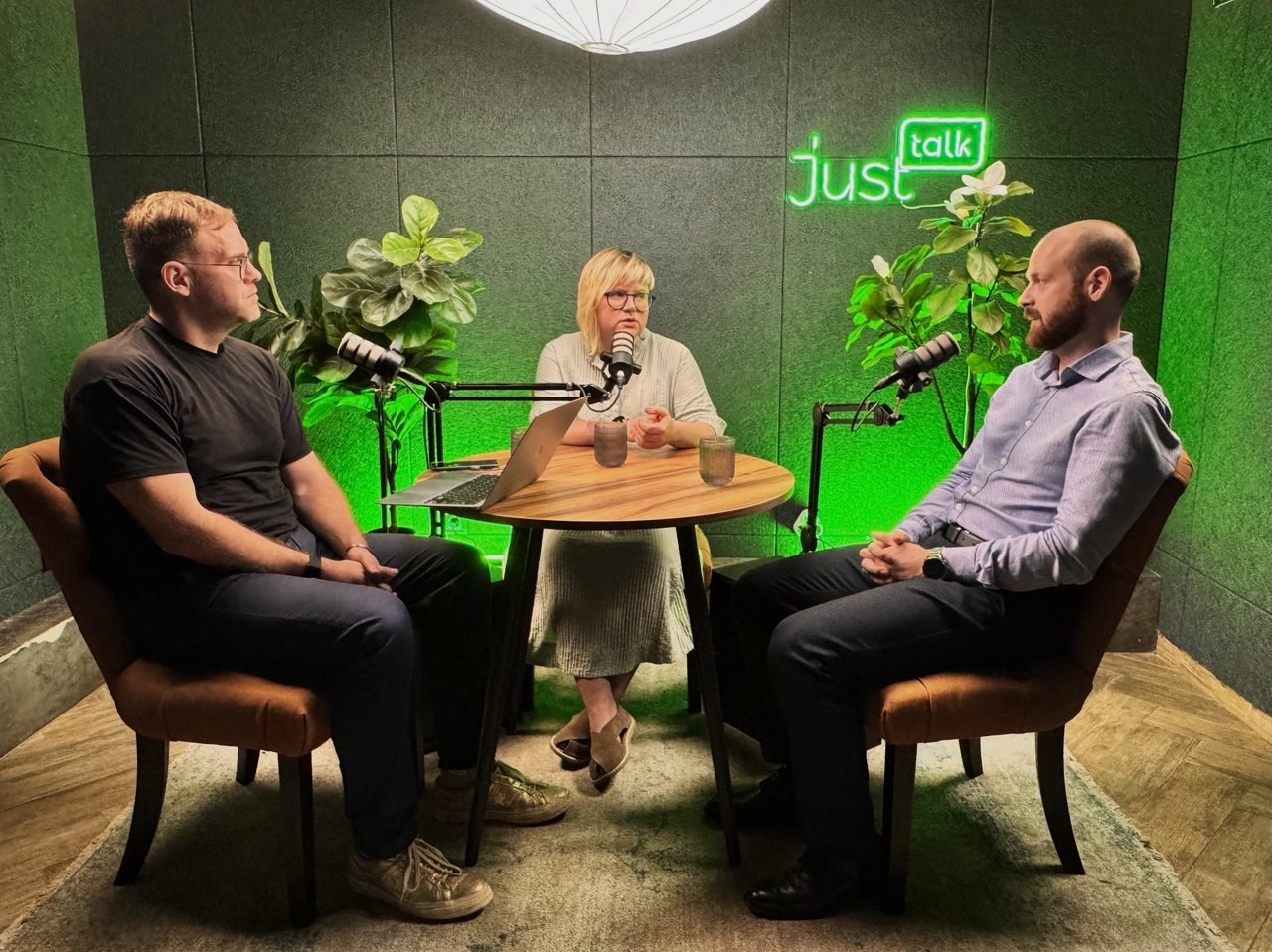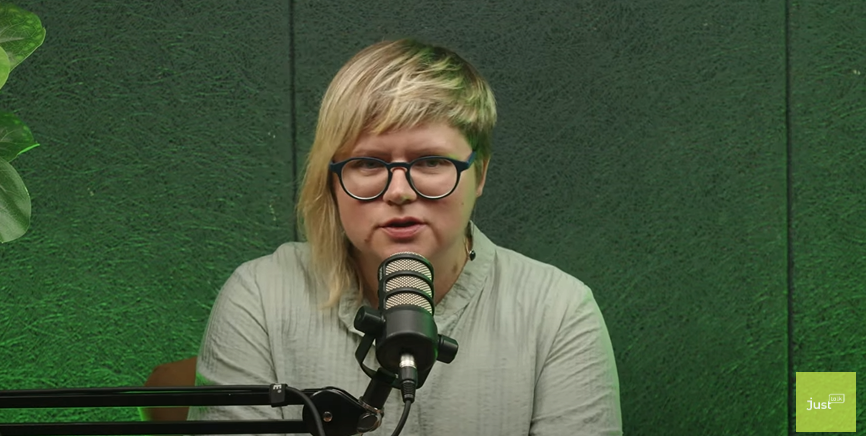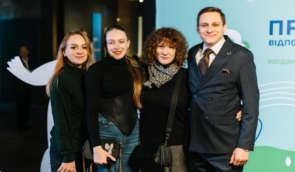How the controversial Law No. 4555-IX undermines anti-corruption and reintegration — Alena Lunova on the JustTalk Context podcast
Recent events related to the adoption of the controversial Law No. 4555-IX have sparked a wave of outrage in Ukrainian society, triggering mass protests. These issues became the central topic of discussion on the JustTalk Context podcast with the participation of Alena Lunova, Advocacy Director of the Human Rights Centre ZMINA, Yevhen Krapyvin, Head of the “Law and Order” Area at the Agency for Legislative Initiatives, and Maksym Yelihulashvili, an expert at the Tolk Analytical Group.
 Maksym Yelihulashvili, Alena Lunova, Yevhen Krapyvin
Maksym Yelihulashvili, Alena Lunova, Yevhen KrapyvinThey analysed in detail not only the content of this controversial document, but also its devastating consequences for Ukraine’s anti-corruption infrastructure and reintegration policy.
Alena Lunova stated that it was not only the content of the law that sparked outrage, but also the unprecedented speed and lack of transparency with which it was adopted: “People were deeply angered by the way it was passed in a single day with procedural violations, how it was pushed through parliament, and how these amendments were inserted into a draft law originally intended to address missing persons“.
Yevhen Krapyvin added that “it was a legislative special operation” aimed at restricting the activities of anti-corruption agencies: NABU and SAPO.
Human rights defenders are particularly concerned about the increasingly frequent use of rhetoric about the “Russian trace” and links with the occupied territories as a tool to exert pressure on opponents and discredit those who disagree.
“ZMINA has been dealing with the consequences of armed aggression for a long time, and we see how the issue of links with the occupied territories has begun to be actively used to exert pressure on opponents. In particular, under the pretext of a “Russian trace”, they are blocking appointments, conducting searches and discrediting candidates for important positions,” said Alena Lunova.
The human rights defender cited a striking example of this dangerous trend, recalling the situation with the selection process for the head of the Economic Security Bureau. NABU detective Oleksandr Tsyvinskyi won the competition fairly, but his appointment was blocked by arguments about his “links to the occupied territories”.
“Just saying that the candidate’s mum gets a pension in the occupied territory is enough to get them rejected. This is a policy of discrediting people through “Russian influence”, which hurts not only anti-corruption agencies but also the overall state policy of reintegration. Such approaches demonise the occupied territories, criminalise contact with people who remain there, and undermine the future of peaceful coexistence after de-occupation,” emphasised Lunova.
 Alena Lunova
Alena LunovaYevhen Krapyvin fully confirmed that links with the occupied territories are increasingly being used as a political tool to remove inconvenient people, which creates dangerous selectivity: “Our Commander-in-Chief (Ed. — Oleksandr Syrskyi) has relatives in the Russian Federation and openly acknowledges this, but this does not prevent him from performing his duties. However, for the head of the ESB, a “link with the Russian Federation” has become a death sentence. Such selectivity appears to be a blatant attempt to get rid of an inconvenient candidate. This is very dangerous in the context of transitional justice“.
In addition to directly undermining the work of NABU and SAPO, the new law No. 4555-IX opens the door to uncontrolled actions by the Prosecutor General’s Office, increases pressure on investigators and prosecutors, and nullifies guarantees of procedural independence. Alena Lunova emphasised that Ukraine, which has declared its intention to join the European Union, cannot afford to return to practices of selective justice reminiscent of authoritarian regimes.
“The anti-corruption infrastructure was established in response to demands from society and international partners. Its undermining is a blow not only to justice, but also to trust in Ukraine as a state. If we return to the influence of the Prosecutor General’s Office from Yanukovych’s time, it will be a direct signal that we are ready to abandon the course of European integration,” said Lunova, pointing to the serious threats to Ukraine’s international image.
Human rights defenders emphasise that issues of war, occupation, and de-occupation must remain beyond political speculation. “We advocate that the state develop a policy of reintegration rather than using war as a tool for political struggle. The government must protect institutions, not destroy them under the guise of patriotism,” reads a statement by human rights defenders published on the website of the Human Rights Centre ZMINA.
The full video of the JustTalk Context podcast, Justice Under Pressure: What Lies Behind the New Law No. 4555-IX, can be found here.
Analysis of Draft Law No. 12414 by the ALI: https://cutt.ly/hrPxMH5H
Analysis of Draft Law No. 13533 by the ALI: https://cutt.ly/BrP3L36n
If you have found a spelling error, please, notify us by selecting that text and pressing Ctrl+Enter.















